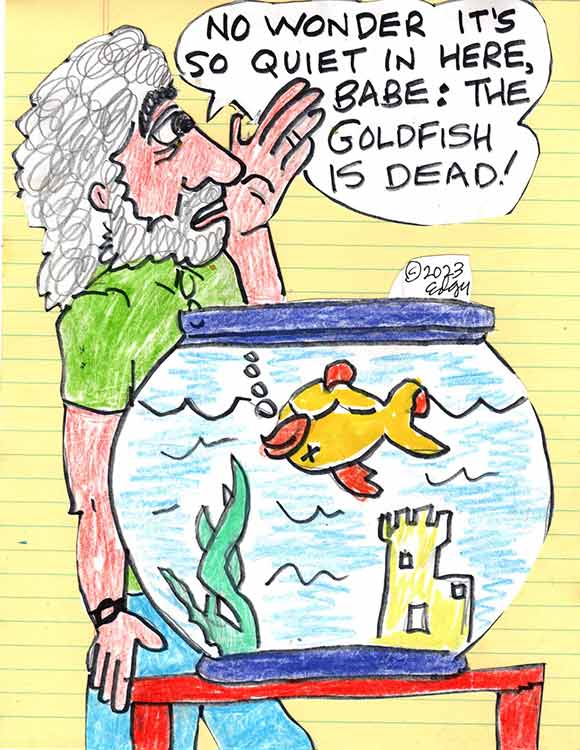The Out-Loud Value of Keeping Quiet
Speaking softly can be a big schtick
By Ed Goldman
In John Huston’s memorable version of Dashiell Hammett’s “The Maltese Falcon,” Peter Lorre (as criminal Joel Cairo) says to Humphrey Bogart (as private detective Sam Spade), “You always have a very smooth explanation.”
To which Bogart/Spade replies, “What do you want me to do, learn to stutter?”
A tankless task.
Much was made (but not for long) about President Joe Biden’s childhood stutter, which re-emerges from time to time. That criticism has morphed into claims that he’s a doddering old man or that he’s never learned to shut up. To recap: His tangents and misnomers aren’t anything new for our Commander-in-Chief.
For a short time in my increasingly distant childhood, I also had a stutter—but only during moments of what constitute high stress for a kid. Like forgetting to do my homework and trying to lie my way to salvation with my fifth-grade teacher, Mrs. Payne. Or, having been suspended for two days and sent home mid-day in the seventh grade for engaging in dubious antics—and, while still rehearsing the best way to summarize this for my mom when she came home from work, being shocked to find her already there. She had skipped work that day because she’d come down with the flu. Now she was going to stay home with a juvenile miscreant.
Like Biden, I pretty much “outgrew” the stutter; unlike him, it was by learning (only a decade or two ago) to simply shut up sometimes.
Why do we find it so difficult in American life to keep our traps shut when we have nothing to say? As President Abraham Lincoln advised, “Better to remain silent and be thought a fool than to speak and remove all doubt.”
In my years as a part-time college instructor, I often gave this example to communications and media students: A man loses his family in a fire that completely destroys his home. A reporter from a local TV station waves a microphone in front of him and, after summarizing the man’s horrific loss, asks, “How do you feel?”
What is the man supposed to say—“I guess I’ll move into a smaller space”?
The point is: Why does the poor guy feel compelled to say anything? The inanity of the question is one thing; compounding the absurdity of it by responding with anything but profanity only deepens its shallowness, if you will. (And I realize: you may not.)
A lot of people get themselves in trouble by thinking they need to say something in almost every situation.
I used to advise my college students and PR clients to learn three little words and reply with them when asked something for which they have no answer: “I don’t know.”
Why does this simple, honest, even humble reply elude us? Simple. We’re so afraid of sounding ignorant that we instead opt for dishonesty.
If you’re so obsessed with not being thought of as being out of touch with a situation, there’s a perfectly acceptable four-word follow-up to your “I don’t know” admission. It’s “But I’ll find out.”
Caution: If you do happen to say that, it’s incumbent upon you to actually find out. I hope that doesn’t insult your intelligence but I felt it had to be said. What do you want me to do, learn to stutter?
Ed Goldman's column appears almost every Monday, Wednesday and Friday. A former daily columnist for the Sacramento Business Journal, as well as monthly columnist for Sacramento Magazine and Comstock’s Business Magazine, he’s the author of five books, two plays and one musical (so far).













